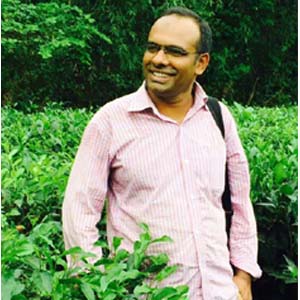
Dr. Romel Ahmed
Head of the Department
Forests and their precious components significantly contribute to the local, regional, and global environment by providing manifold services and products such as timbres, medicinal plants, foods, fuel, and fodder, supporting sustainable human life, and conservation of biodiversity. The Faculty of Forestry and Environmental Science at Shahjalal University of Science and Technology offers one of the very best undergraduate and postgraduate programs in Bangladesh in the field of forestry and environment.
Citizens, businesses, and governments are increasingly aware of environmental consequences and sustainable resource management as the key to a sustainable future. This is an exciting opportunity for students and professionals in forestry, natural resources, and environmental management fields to play roles in the sustainable development and conservation of our ecosystem. Our forests are increasing in value as a source of renewable energy, a buffer for climate change, and a reservoir for biodiversity.
Against the backdrop of the growing population and limited land resources of Bangladesh, the Department of Forestry and Environmental Science of Shahjalal University of Science and Technology is offering unique scopes to contribute to our national economy while protecting our vanishing biodiversity and natural resources. Keeping these attributes in mind, our department aims to harmonize the functions of forests and human life. Therefore, we adopt diverse and multiple techniques of research and education.
Most of our faculty members have obtained world-class training and degrees from reputed universities in Europe, Australia, Canada, and Asia. We have particular strengths in forest ecology, environmental law and governance, CBNRM, forest biotechnology, forest economics, wildlife management, sustainable development, and resource social science. One of the unique characteristics of the department is our integrated education scheme; in the first stage the students will receive the basic knowledge and skills about forests, and in the second stage they will gradually be guided into the extensive and practical studies of issues related to protection, harvesting, utilization, products and culture of forest with the active involvement of the forest managers, forest-dependent communities, indigenous people, policymakers and various other stakeholders.
Biodiversity conservation through a collaborative approach is a growing concern all over the world. In light of this, our courses’ contents are devised and regularly updated to address global dynamics of climate change, adaptation, mitigation, and resilience engaging the vulnerable local communities.
We strongly believe graduates of this department will have the ability and efficacy to compete in the contemporary world with the knowledge and experiences of recent developments in regard to forest and environmental governance.
